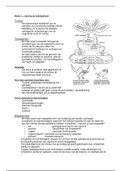PO330 Exam Study Guide.
Contentious politics: four components - Answer✔✔+ Noninstitutional or non-routine forms of
interactions,
+ Where actors make claims bearing on other actors' interests,
+ Leading to coordinated efforts on behalf of shared interests or programs,
+ In which governments are involved targets, initiators of claims, or third parties
Social Movement: distinctions with other forms of contentious politics - Answer✔✔A sustained
campaign of claim-making that uses repeated performances to advertise the claim. Based on
organizations, networks, traditions, and solidarities that sustain these activities,
Common mechanisms: six example concepts - Answer✔✔Brokerage
Identity shift
Diffusion
Social appropriation
Repression
Co-optation
Political development: two dimensions; connections to contentious politics -
Answer✔✔Democratization is political power exercised by the people. Central properties
include: electoral rights, political and civil liberties, rule of law.
Repertoire - Answer✔✔Sources of performances that are currently known and available within
some set of political actors
Assimilative strategy: examples - Answer✔✔Aimed at political inputs: lobbying/petitioning,
elections/referendums, High in the US and Sweden
Assimilative strategies aimed at political outputs: Intervention in licensing procedures, litigation
in courts (often temporary results).
Confrontational strategy: examples - Answer✔✔Public demonstration and civil disobedience,
see Germany and France.
1
, ©FYNDLAY.
Political Output - Answer✔✔The result of the gov and the various ways in which individuals,
groups, or institutions participate in the political process and influence decision-making. Ex. the
result of the state building.
Procedural impact: definition; examples - Answer✔✔Greater access to formal decision-making,
such as through national debates and referendums, appointment/election of anti-nuclear
activists/politicians, representation by existing parties, and corporatist strategy. See Sweden and
the US.
Substantive impact: definition; examples - Answer✔✔Suspension of nuclear power plant
licensing and construction, shutdown of already-operating plants, and reorientation of energy
policies. See Sweden and the US.
Political opportunity: definition - Answer✔✔An approach of social movements which argues
that success or failure of social movements is affected primarily by political opportunities.
Structural impact: definition; examples - Answer✔✔The emergence of green or ecological
parties, see Germany and France.
Political input - Answer✔✔Type of structure the the gov is ex. Democratization
Hybrid regime: definition - Answer✔✔A type of political system that often emerges during an
incomplete transition from an authoritarian regime to a democratic one, or vice versa. These
regimes exhibit a combination of autocratic features alongside democratic elements.
Means of organizational expansion: Franchising and Social Appropriation -
Answer✔✔Franchising:
Local organizations remain independent but use the name of the national organization and
receive their publicity in return for financial contributions and cooperation in joint campaigns.
Appropriating:
Movements may draw upon the resources of preexisting organizations and associations not
created primarily for collective action.
Centralized or decentralized structure: examples; tradeoffs - Answer✔✔Centralized and
Hierarchical. Examples: U.S. Air Force, Southern Christian Leadership Conference
Decentralized and Participatory. Examples: Alcoholics Anonymous, Transition Pittsburgh
Social Network: examples; role in movements - Answer✔✔Based on trust, information, resource
exchange, social ties, or instrumental alliances and forming bridges between organizations
2





